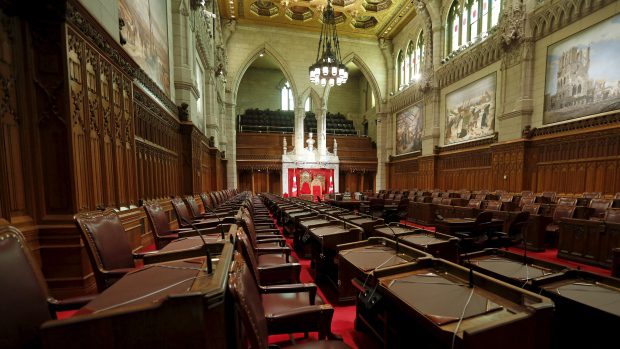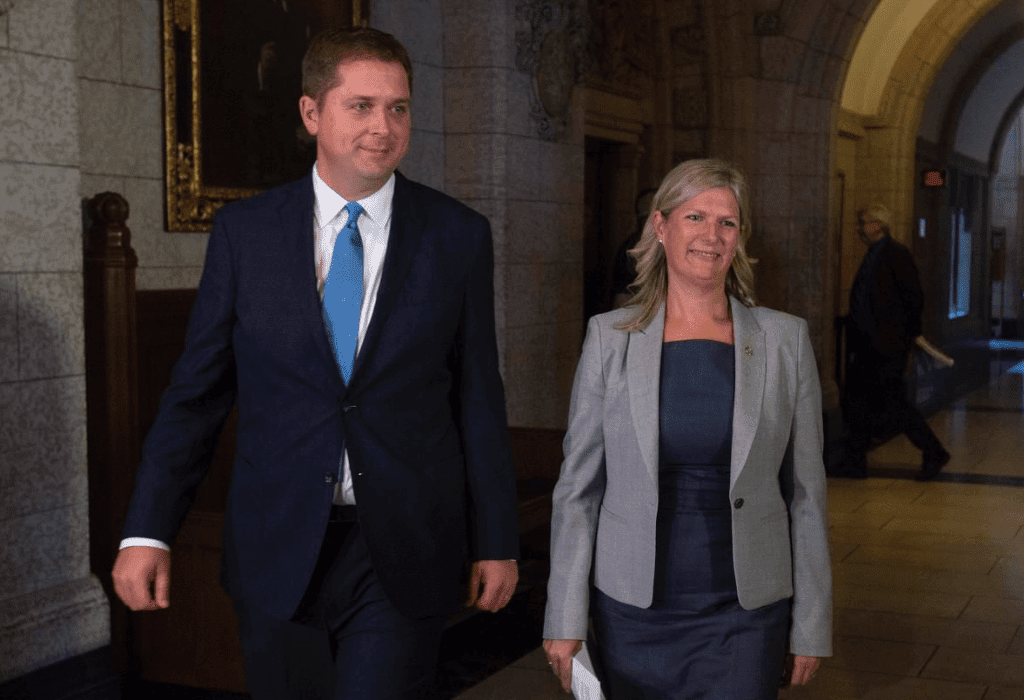Last week, Independent Senator Elaine McCoy and pollster Nik Nanos penned a piece in Policy Options to talk about the Senate's latest poll numbers by which we mean the polling data on the impression that people have of the Upper Chamber. And in the three years since prime minister Justin Trudeau declared it to be independent and he set it adrift, its favourability ratings have improved slightly. The question Senator McCoy asks is what it will take to really move the needle on those ratings. My first impression? Time.
Let us not forget that for the better part of the past 151 years of Confederation, the Senate has always been a convenient scapegoat for governments to blame for something or another. Its status as an appointed body as opposed to an elected one has often been the source of the aspersions that are frequently cast upon the chamber, and of course, it's human nature for people to quickly forget about any good work of the institution, while stories of the scandals linger in our collective memories for long after they have been resolved (usually by means of an honourable resignation, though those days are largely passed).
What comes to mind when average Canadians are asked about the Senate? We still get stories of former Senator Andrew Thompson, the first Senator in Canadian history to be stripped of his office staff, salary, and expense account for truancy after it was discovered that he had been living in Mexico because of alleged health problems. To this day, we still hear about the apocryphal tales of absent senators who are never there never mind the fact that there is no truth to the matter, and all Senate attendance records are made public (unlike those of the House of Commons). But it's a brand that still has not faded with enough time because it was such a visceral sense of abuse of the public purse.
Other tales include the notion that Senators spend their time in the chamber napping (something I have yet to witness, though I've certainly seen it happen in the House of Commons, for the record). In recent years, there have been tales of senators abusing expense accounts, fuelled by the salacious news items of Senators Mike Duffy and Pamela Wallin, and the Auditor General's report which, I again will remind you was hugely problematic because many of the items that he highlighted in individual reports were the result of the personal judgments of individual auditors and many of those items were not only overturned by the dispute resolution process headed by former Supreme Court Justice Ian Binnie, and later still from the legal analysis hired by the Senate to review the findings, where it was stated that many of the calls that the Auditor General made exceeded the legal standards and would not have stood up in court if they were litigated. And yet, it made for many a headline that still resonates in people's minds.
And then there are the decades of appointments that have long been criticized. The tales of party bagmen getting Senate seats have never really gone away, and they persist to this day, never mind the fairly open and transparent arm's length appointment process. The notion that Senate seats are reserved for those who've done favours for the prime minister still taints the perception of the chamber, and ignores that throughout much of history, there was a fairly rigorous appointment process that may not have been as arm's-length as the current one, but nevertheless found very good people to fill the chamber for a lot of years. None of this was helped by the fact that Stephen Harper made a rash of rushed appointments in late 2008 (after swearing that he wouldn't appoint "unelected senators") and many of those improperly vetted appointees proved problematic (I refer you to Duffy, Wallin, Brazeau, and Meredith as immediate examples), and for the remaining time in which he made Senate appointments, the bulk were exceedingly partisan in their tone and behavior (not to mention were under the false impression about the fact that they were to be whipped in their votes and that the PMO would be pulling their puppet strings, which never should have been allowed if there had been enough institutional memory left in the caucus to push back).
All of these things linger in the minds of the Canadian public, and because the Senate is not widely covered in the press (unless there's a scandal), most of the good work they do is not widely reported on, and if it is, it's an item that rarely gets top billing on the news, and it fades from sight immediately. Hence, even in this era of the "new" Senate that acts more independently and is far more active in terms of its work of amending legislation, it hasn't changed many impressions favourably enough especially if they are now being routinely demonized for "holding up" legislation (which is not the case), or when the extreme partisanship of certain senators is pervasive over social media and tends to colour perceptions.
This all having been said, I think that there continue to be potential pitfalls or landmines for the Senate to navigate as it tries to establish this "reformed" reputation, the first of which is the possibility that it defeats a government bill. Independent senators have been exceedingly cautious to avoid letting this happen, and while that would immediately cause a reaction among the population, it is likely to be a very polarized reaction if and when it happens, depending on whether you support the government or not. But more than that, I fear that if the Senate continues on its current path of appointing only independent senators who don't feel bound by any particular sense of restraint, we may find ourselves with a sanctimonious, priestly class in the heart of our Parliament, making pronouncements from on high. I'm not sure that this is the kind of reform reputation that would do the institution any good, and it's something that I would caution senators from allowing to happen and that means having a certain level of self-awareness as to how they present themselves, because it will come around to bite them if they're not careful.








